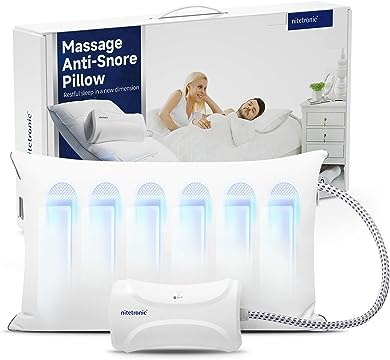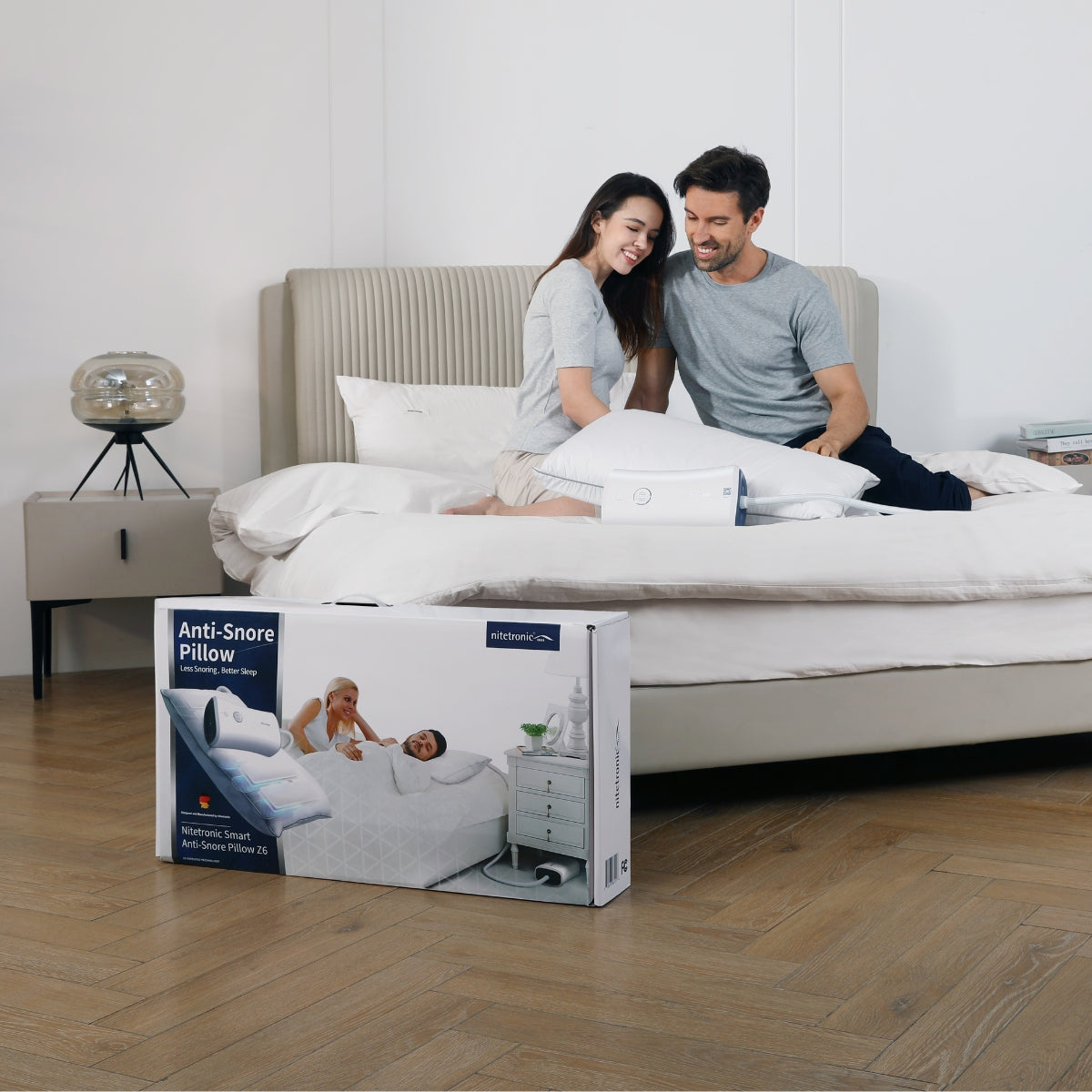- Why Do People Snore While Sleeping?
- What is the Best Thing to Stop Snoring?
- Why Do People Need a Pillow to Sleep?
- How to using a Pillow to Reduce Snoring?
- Do Sleep Apnea Pillows Really Work?
- Benefits of Using an Anti-Snoring Pillow
- Conclusion: Is a Pillow or No Pillow Better for Snoring?
If you or someone you know snores, it can be a frustrating problem to deal with, both for the snorer and those around them. Snoring can lead to sleep deprivation and poor quality sleep, affecting overall health and well-being. Fortunately, there are many anti-snoring pillows on the market today that are designed to help reduce snoring during sleep.
Why Do People Snore While Sleeping?
Snoring occurs when airflow through the upper airway is obstructed, usually due to the relaxation of throat muscles and soft palate during sleep. This relaxation allows the airway to narrow and vibrate, producing the characteristic sound of snoring. Snoring is more common in people with conditions like obesity, sleep apnea, or alcoholism, but can also be caused by structural issues like a deviated septum or enlarged tonsils.

What is the Best Thing to Stop Snoring?
The best way to stop snoring depends on the cause of the snoring. If it is due to a structural problem like a deviated septum or enlarged tonsils, then correcting these issues may be necessary. In these cases, a visit to your GP or ENT surgeon can help.
For milder cases of snoring, lifestyle changes such as losing weight, quitting smoking, and cutting back on alcohol may help. Additionally, using an anti-snoring pillow like the Nitetronic can be a simple and effective solution for many people.
Why Do People Need a Pillow to Sleep?
People need a pillow to sleep for several reasons. One of the main reasons is to provide support for the head and neck, which helps to maintain an open airway and avoid blockage during sleep. Without a pillow, the head and neck may sag, causing the airway to become narrower and increasing the risk of snoring or sleep apnea.
A pillow also provides cushioning for the head, protecting it from injury or pain during sleep. In addition, using a pillow can help to keep the spine in its natural alignment during sleep, which can alleviate back pain and other spine-related issues.
Moreover, a pillow can help to keep the head and neck at a comfortable temperature during sleep. If the head and neck are not supported properly, they may become exposed to drafts or cold air, which can cause discomfort or even illness.
Lastly, a pillow can also provide additional support for the body during sleep, helping to align the joints and relieve muscle tension, leading to a more restful and comfortable sleep experience.
a pillow is essential for providing support, comfort, and alignment during sleep, helping to ensure a healthy and restful slumber.
How to using a Pillow to Reduce Snoring
Using a specialized anti-snoring pillow, such as the Nitetronic anti-snoring memory foam pillow Z6, can help reduce snoring during sleep. These pillows are designed to raise the head and neck slightly, opening up the airway and reducing the vibration that causes snoring. By raising the head and neck, it also helps to keep the throat muscles in an open position, making it easier to breathe and reducing the likelihood of snoring.

Do Sleep Apnea Pillows Really Work?
Sleep apnea pillows, like the Nitetronic anti-snoring pillow, can indeed help reduce snoring. The pillows are designed to raise the head and neck slightly, opening up the airway and reducing the vibration that causes snoring. This positioning allows for easier breathing and less likelihood of snoring.
Benefits of Using an Anti-Snoring Pillow
Using an anti-snoring pillow like the Nitetronic has several benefits:
Reduces snoring and sleep apnea: The Nitetronic’s memory foam technology supports the head and neck, opening up the airway and reducing the vibration that causes snoring. This can significantly reduce or even eliminate snoring in many cases.
Improves sleep quality: By reducing snoring, the Nitetronic pillow helps you to sleep more soundly, resulting in improved overall sleep quality.
Helps prevent sleep deprivation: Snoring can disturb your partner’s sleep, causing sleep deprivation. Using an anti-snoring pillow like the Nitetronic can help reduce this problem, leading to improved sleep for both you and your partner.
Reduces stress and tiredness: Snoring can lead to stress and feelings of tiredness during the day. Reducing snoring with an anti-snoring pillow can help alleviate these symptoms.

Conclusion: Is a Pillow or No Pillow Better for Snoring?
When it comes to reducing snoring, using a specialized anti-snoring pillow, such as the Nitetronic pillow, can be very effective. The Nitetronic’s memory foam technology supports the head and neck, opening up the airway and reducing the vibration that causes snoring. This can significantly reduce or even eliminate snoring during sleep, leading to improved sleep quality and overall health benefits.
If you or your partner snores, it may be worth investing in an anti-snoring pillow like the Nitetronic to help reduce this problem. visit their official website for more information about this product and other related questions you may have.
Nest topic: How to stop snoring: Lifestyle Changes and Home Remedies to Stop Snoring












Leave a comment
This site is protected by hCaptcha and the hCaptcha Privacy Policy and Terms of Service apply.